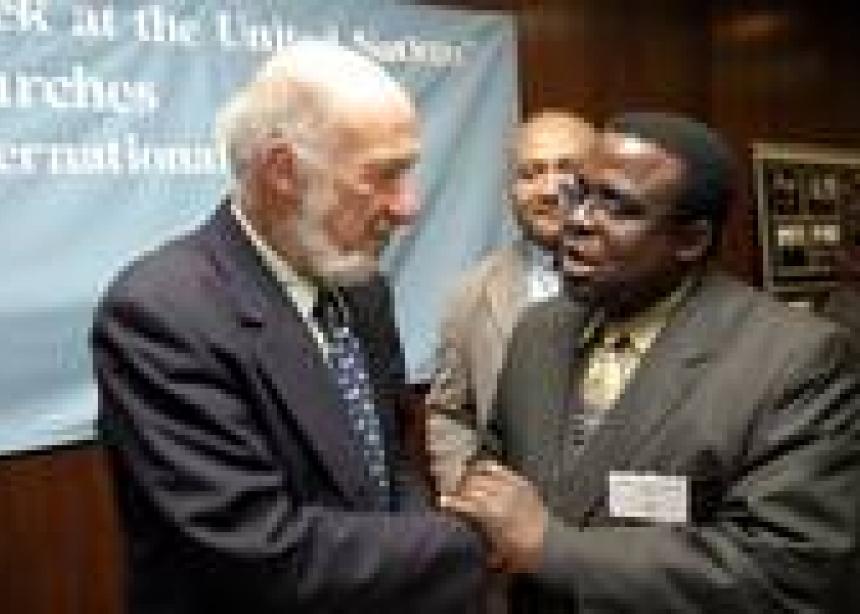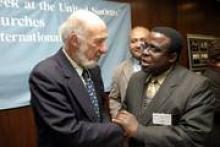Methodist Archbishop Michael Kehinde Stephen of Ibadan, Nigeria has appealed to Christian and Muslim leaders worldwide to act together in the face of extremist violence that threatens to divide Nigerians along religious lines.
“In Nigeria, leaders of the Muslim and Christian communities have come together to condemn violence,” the archbishop noted in an interview. “Since 1999 the Nigerian Inter-religious Council (NIREC) has worked to calm the passions arising from a series of attacks and retaliations manifested in murders and the burning of churches and mosques.”
In recent weeks, Islamic leaders have joined Christians in condemning renewed violence fomented by Boko Haram, a Nigerian group that demands the imposition of Sharia law and the eradication of western influence in the nation. The current wave of terror was started by church bombings at Christmas.
Stephen asserted, “We want to see Nigeria remain as one, but today there is apprehension and anxiety among people who fear that calls for geographical division may intensify.” The north of Nigeria is populated predominantly by followers of Islam, while southern Nigeria is largely Christian.
“It is essential that people of faith work together to instil mutual trust among our communities,” said Stephen, “yet our churches have not developed a unified plan beyond dialogue. And it is an open question whether the government can re-establish confidence and inspire national unity. There is a sense that we are being caught up in the sort of divisions that led to the tragedy of our civil war in the late 1960s.”
The archbishop serves as moderator of an international Christian panel that is preparing a report on ecumenism in the 21st century to be presented at the 10th Assembly of the World Council of Churches in 2013. He was interviewed during a meeting of this broadly representative group, which took place from Jan. 14-19 in Addis Ababa, Ethiopia.
Working together for peace
Archbishop Stephen expressed thanks for prayers and other expressions of concern for Nigeria that he has received from the global community.
He continued, “What I would like to see now is the appointment of a highly visible visitation panel made up of both Christians and Muslims of international reputation. They would join in saying that what is happening in Nigeria is wrong, and that we have come to Nigeria to stand in solidarity with those who are striving for peace.”
Stephen also urged for a strong ecumenical support to the Christian Association of Nigeria (CAN) and the Christian Council of Nigeria (CCN) in capacity building and empowering them to respond to the situation in Nigeria.
He explained, “The government and the people need this sort of demonstration that what is happening in Nigeria is no longer a local problem. It is a cause of deep concern internationally, and the great faith traditions can be part of the solution.”
Stephen suggested that in the longer term, international Christian bodies might appoint an “ecumenical envoy” as was done in the build-up to independence for South Sudan. Such an envoy would relate to churches through such national inter-church organizations as the CAN and the CCN.
“Through an envoy or another means of regular contact,” he concluded, “world religious bodies can assist NIREC, CAN and the CCN by sharing resources, experiences from other places and best practices, in order to equip and mobilize our communities for the sake of peace.”
Read also:
WCC accompanying churches in situations of conflict
WCC programme on Inter-religious dialogue and cooperation
WCC member churches in Nigeria
--Jan. 26, 2011



Add new comment
Canadian Mennonite invites comments and encourages constructive discussion about our content. Actual full names (first and last) are required. Comments are moderated and may be edited. They will not appear online until approved and will be posted during business hours. Some comments may be reproduced in print.